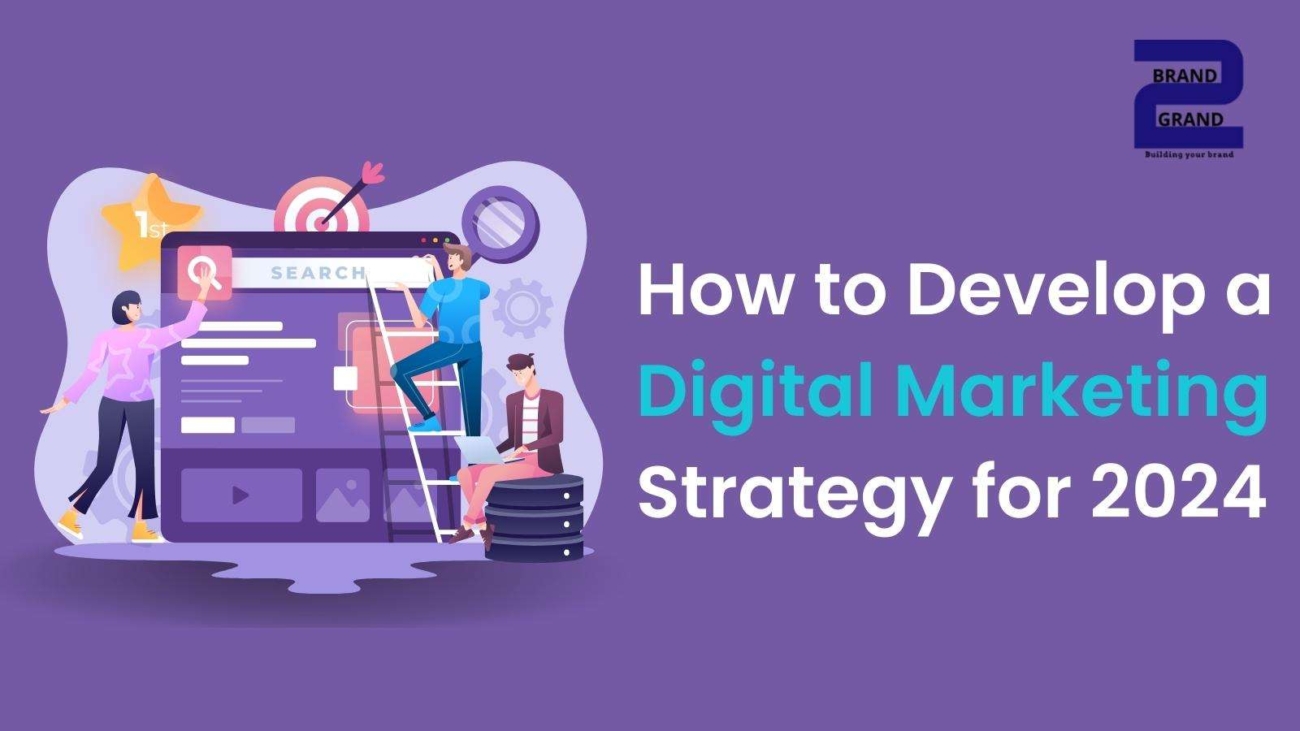As of my last knowledge update in January 2022, I don’t have real-time data on how small businesses are specifically spending their marketing dollars in 2024. However, I can provide you with insights into general trends and strategies that small businesses often adopt. For the latest and most accurate information, please refer to recent industry reports, surveys, and studies conducted in 2024. Here are some common trends and strategies that were relevant for small businesses in marketing:
1. Digital Marketing Dominance:-
Small businesses continued to allocate a significant portion of their marketing budget to digital channels. This includes investments in social media marketing, search engine optimization (SEO), email marketing, and online advertising.
2. Social Media Advertising:-
Platforms like Facebook, Instagram, Twitter, and LinkedIn remained popular for small businesses to connect with their target audience through paid advertising. Social media ads offer targeted options, making it a cost-effective choice for reaching specific demographics.
3. Content Marketing:-
Creating valuable and relevant content remained a priority for small businesses. Content marketing, including blog posts, videos, and infographics, helps establish authority, engage audiences, and improve search engine rankings.
4. Influencer Partnerships:-
Collaborating with micro-influencers or local influencers became a popular strategy for small businesses looking to leverage trusted voices in their communities.
5. Local SEO:-
As local search continued to play a crucial role, small businesses focused on optimizing their online presence for local search through tactics such as local SEO, Google My Business optimization, and online reviews.
6. Email Marketing Automation:-
Email marketing remained an effective and budget-friendly tool for small businesses. Automation features helped them nurture leads, engage customers, and promote products or services.
7. Video Marketing:-
The popularity of video content persisted, and small businesses embraced video marketing for promotional and educational purposes. Short-form videos for social media and longer-form content for websites and YouTube were common.
8. Mobile Optimization:-
Given the prevalence of mobile device usage, small businesses invested in ensuring their websites and marketing materials were optimized for a seamless mobile experience.
9. Customer Retention Programs:-
Small businesses recognized the value of retaining existing customers. Loyalty programs, personalized offers, and targeted communication aimed at keeping customers engaged and satisfied were part of marketing strategies.
10. Community Engagement:-
Building a sense of community and engaging with the local audience remained a focus. Small businesses often participated in local events, sponsorships, and collaborations to strengthen their ties with the community.
11. Data Analytics Tools:-
Utilizing data analytics tools became more common among small businesses. Analyzing customer behavior, campaign performance, and other key metrics helped in making informed marketing decisions.
12. Partnerships and Collaborations:-
Small businesses explored partnerships and collaborations with other local businesses or complementary brands, enhancing their reach and attracting shared audiences.
Keep in mind that the specific strategies adopted by small businesses can vary based on their industry, target audience, and geographic location. To get the most accurate and recent information, consider looking into industry reports, case studies, and surveys specific to small businesses in 2024.
What To Look For In a Digital Marketing Agency In 2024
Choosing the right digital marketing agency is crucial for the success of your business. As of my last update in January 2022, the following criteria are essential to consider when selecting a digital marketing agency in 2024. Keep in mind that the industry evolves, so staying current with the latest trends and practices is advisable:
1. Expertise in Your Industry:-
– Look for an agency with experience in your specific industry. Familiarity with your niche can lead to more effective and targeted marketing strategies.
2. Proven Track Record:-
– Review the agency’s portfolio and case studies. A reputable agency should be able to showcase successful campaigns and measurable results.
3. Diverse Skill Set:-
– Ensure the agency has expertise in a range of digital marketing channels, including SEO, social media, content marketing, email marketing, paid advertising, and more.
4. Transparency and Communication:-
– Choose an agency that values transparency and maintains open communication. Regular updates, reporting, and clear explanations of strategies are essential.
5. Adaptability to Trends:-
– Look for an agency that stays abreast of the latest industry trends and is adaptable to emerging technologies and strategies.
6. Data-Driven Approach:-
– A good agency relies on data to inform decisions and measure campaign performance. They should use analytics tools and provide insightful reports.
7. Client References:-
– Request references from past or current clients. Speaking directly to clients can provide valuable insights into the agency’s work ethic and results.
8. Customized Strategies:-
– Avoid one-size-fits-all approaches. A reliable agency will tailor strategies to meet your specific business goals and target audience.
9. Clear Understanding of Your Target Audience:-
– A successful campaign begins with a deep understanding of your target audience. Ensure the agency is capable of creating content and campaigns that resonate with your customers.
10. Creativity and Innovation:-
– Look for an agency that brings creative ideas to the table. Innovation is crucial in a constantly evolving digital landscape.
11. Compliance with Data Privacy and Regulations:-
– Verify that the agency adheres to data privacy regulations and follows ethical practices in the collection and use of data.
12. Integrated Marketing Approach:-
– A comprehensive marketing strategy often involves multiple channels. Ensure the agency can integrate various marketing channels for a cohesive and effective campaign.
13. Local and Global Presence:-
– Depending on your business goals, consider whether the agency has experience in local or global markets and can adapt strategies accordingly.
14. Clear Service Agreement and Pricing:-
– Review the terms of the service agreement, including pricing structure, deliverables, and timelines. Ensure everything is transparent and clearly outlined.
15. Client Retention Rate:-
– A high client retention rate can be an indicator of client satisfaction and the agency’s ability to maintain long-term partnerships.
16. Collaborative Approach:-
– Look for an agency that values collaboration and sees the client as a partner. A strong client-agency relationship fosters better understanding and results.
17. Accessibility and Responsiveness:-
– Ensure the agency is accessible and responsive to your inquiries. Prompt communication is crucial for addressing concerns and making timely adjustments.
18. Legal Compliance:-
– Verify that the agency adheres to legal and ethical standards in their marketing practices. This includes compliance with copyright laws, advertising regulations, etc.
Before making a final decision, consider interviewing potential agencies, asking detailed questions, and assessing how well their values align with your business objectives. Take the time to evaluate multiple options to find the agency that best meets your specific needs and goals.
How to Develop a Digital Marketing Strategy for 2024
Developing a digital marketing strategy for 2024 requires a forward-thinking approach that incorporates the latest trends and technologies. Here’s a step-by-step guide to help you create an effective digital marketing strategy for the coming year:
1. Set Clear Objectives:-
– Define specific, measurable, achievable, relevant, and time-bound (SMART) goals for your digital marketing efforts. These goals could include increasing website traffic, growing social media followers, boosting sales, or improving brand awareness.
2. Audience Research:-
– Understand your target audience’s demographics, behaviors, interests, and pain points. Create detailed buyer personas to guide your marketing efforts effectively.
3. Competitive Analysis:-
– Analyze your competitors’ digital marketing strategies. Identify their strengths, weaknesses, and areas where you can differentiate your brand.
4. SWOT Analysis:-
– Conduct a SWOT (Strengths, Weaknesses, Opportunities, Threats) analysis for your business to identify internal and external factors that can impact your digital marketing strategy.
5. Budget Allocation:-
– Determine your digital marketing budget. Allocate funds to different channels and tactics, ensuring a balance that aligns with your objectives.
6. Channel Selection:-
– Identify the digital marketing channels that are most relevant to your audience and goals. This could include social media, email marketing, content marketing, SEO, paid advertising, and more.
7. Content Strategy:-
– Develop a content strategy that includes the type of content you’ll create (blog posts, videos, infographics, etc.), the topics you’ll cover, and a content calendar for consistent publishing.
8. Search Engine Optimization (SEO):-
– Optimize your website and content for search engines. Research keywords, improve site speed, and ensure mobile-friendliness.
9. Social Media Plan:-
– Create a social media strategy that outlines your posting schedule, content themes, and engagement tactics. Consider using paid social media advertising for increased reach.
10. Email Marketing:-
– Plan and segment your email marketing campaigns. Consider personalized emails and automation to nurture leads and maintain customer relationships.
11. Paid Advertising:-
– If relevant, set up paid advertising campaigns on platforms like Google Ads, Facebook Ads, or LinkedIn Ads. Create compelling ad copy and target specific demographics.
12. Conversion Funnel:-
– Map out the customer journey from awareness to conversion. Create content and touchpoints to guide potential customers through each stage.
13. Data and Analytics:-
– Implement analytics tools to measure the performance of your digital marketing efforts. Regularly analyze data to make data-driven decisions and optimize your strategy.
14. Adapt to Emerging Trends:-
– Stay informed about the latest digital marketing trends and technologies, such as AI, voice search, or augmented reality. Be ready to incorporate these into your strategy as they become relevant.
15. Community Building:-
– Engage with your audience and build an online community around your brand. Encourage user-generated content and foster a sense of belonging.
16. Testing and Optimization:-
– Continuously test and experiment with different tactics. Monitor the results, identify what works best, and adjust your strategy accordingly.
17. Sustainability and Social Responsibility:-
– Consider how sustainability and social responsibility initiatives can be integrated into your digital marketing efforts. Communicate your commitment to these principles.
18. Ethical Marketing:-
– Ensure that your digital marketing practices adhere to ethical standards, respecting data privacy and transparency.
19. Team and Training:-
– Invest in training and development for your digital marketing team. Ensure they have the skills and knowledge to execute your strategy effectively.
20. Review and Refine:-
– Regularly review your digital marketing strategy, assess its performance, and make necessary refinements to keep it aligned with your goals and the evolving digital landscape.
Remember that a successful digital marketing strategy for 2024 requires adaptability and a commitment to delivering value and personalized experiences to your audience. Stay flexible, monitor trends, and be prepared to adjust your strategy as needed to achieve your business objectives.
Why Social Media is Important for Business
Blogging has been around for decades, and while social media platforms like Twitter and Facebook have emerged as popular marketing tools, blogging is still an important component of a successful marketing strategy.
Here are six reasons why blogging is still important for marketing:
Drives Traffic to Your Website: Blogging is an effective way to drive traffic to your website. When you create high-quality content that is optimized for search engines, it can help improve your website’s search engine rankings, making it easier for people to find your business online.
Establishes Authority: By regularly creating valuable and informative content, your blog can establish your business as an authority in your industry. This can help build trust with potential customers and make your business a go-to source for information in your field.
Increases Engagement: Blogging can also increase engagement with your customers. By providing a platform for discussion, you can encourage customers to interact with your business and share their thoughts and opinions.
Helps Build Relationships: Blogging is also an effective way to build relationships with your customers. By providing insights into your business, sharing your story, and engaging with your customers, you can create a more personal connection with your audience.
Supports Your Social Media Strategy: Blogging can also support your social media strategy. By creating content that is shareable on social media platforms, you can increase your reach and attract new customers.
Provides Value for Your Customers: Finally, blogging provides value for your customers. By creating content that is informative, helpful, and relevant to their needs, you can establish your business as a valuable resource and build lasting relationships with your customers.
In conclusion, blogging is still an important component of a successful marketing strategy. By driving traffic to your website, establishing authority, increasing engagement, building relationships, supporting your social media strategy, and providing value for your customers, blogging can help your business succeed in the digital age.
Latest Social Media Marketing Ideas & Strategy in 2023
Social media is constantly in flux. As platforms continuously work to enhance their users’ experiences, brands must be prepared to adapt. Whether you’re working on new scopes of work for clients or strategizing corporate social media campaigns, knowing which trends are expected to rise in the year ahead is critical for your content’s success. While there are many social media updates to explore, I’ve identified six trends you shouldn’t overlook in the new year.
User generated content will grow
If the boom of BeReal isn’t proof enough that social media users want more #no filter moments on their feeds, Stackla recently revealed that 88% of consumers identify authenticity and reliability as key decision drivers when it comes to their choice to complete in-app purchases and engage with brands. The era of user-generated content (UGC) is here: Reviews, unboxings, tutorials and product reviews posted on social media have placed consumers in the influencer role. It makes sense that real feedback from consumers is more likely to resonate with other like-minded consumers, so 2023 is the year to dive deeper into winning consumers over with those genuine consumer experiences.
Getting yourself set up online with social media is now becoming an absolute necessity for any business, whether based in a physical location or explicitly online. This article will show you how to effectively market your company using this new marketing outlet. It’s not as hard as you might think it is.
Use lists as much as possible. People love lists because they are easy to read and easy to pass on to their friends. When you produce blogs or articles with lists, those who find the information you provide useful are more likely to pass the link onto others via Facebook, Twitter, or another social networking site.
Always remain positive when marketing via social media. People like to be around others and things that make them feel good. Bad mouthing others or making negative statements can lead to others viewing your product or service negatively. Be sure to keep this in mind on your personal page as well if you have one.
The key to being successful using social media marketing is to have excellent content. This content has to be inspiring, educational, and interesting so that your followers will want to share it. When they share your content, you and your business are being exposed to new potential followers who may also share your content and build your social media presence.
You can get your followers’ attention by posting something in a format that makes reading easier. For instance, try coming with a list of top 10 tips or writing questions and answers. The visual aspect of your article will make it more appealing and your readers will be more likely to share it.
The velocity of the social media marketing campaigns can be frustrating. Successful campaigns do not happen overnight and their results are hard to measure. It is nothing like placing an advertisement on television with immediate results. The slow, steady approach is the only way to have successful marketing on social media.
Social Media Marketing Company
You should definitely think twice before you hire out a company dealing specifically in social media marketing. Some of these companies are frauds. They use thousands of fraudulent Facebook, Twitter and YouTube accounts, made through automated registration bots and proxy servers. Criminals have found ways to defraud marketing customers while making it look as though they are doing a good job.
As you can see from this article, while social media can seem intimidating for someone who hasn’t spent much time on it, it is really quite simple. As far as marketing goes, social media is actually something that is free and simple enough to do yourself without having to hire a professional.
Why Important Social Media Marketing for Business Growth?
You have probably heard that you can market your products and services through social media, but you probably don’t know how to go about doing so. You might be used to older marketing methods. There is no reason to fret; social media marketing has some things in common with other strategies, and it is possible to learn how to utilize it. Here are some ways to help you do that.
Monitor your competitors on social media sites. Spend a little time looking at what your top five competitors are doing out there in the social media world. Look at which social sites they are most active on, what kind of content they are publish, how many fans they have and how they promote their site and what they have to offer.
Include a widget for Facebook’s “Like” button on your blog at the top of every page. This box lets people LIKE you on Facebook. People can do this without navigating away from the page. When you make it easy, more people will respond and you increase your own exposure.
When working with social media marketing, you should always remember that you are speaking to individual people, and not the masses. The tone of your postings should be directed towards personal level for maximum success. It takes some practice to develop the right voice, but over time and with practice you will be able to communicate effectively.
Post new content regularly. If you do not update your status at least once a week, your followers will forget that you exist. Perhaps you could post new content on the same day or at the same hour so that your followers have something to look forward to and will think about logging on to see what you have posted.
Social Media Marketing Company
If you decide to utilize a marketing company to help you with social media marketing, be cautions. Unfortunately, a number of these firms have fraudulent schemes running and they prey on the inexperience of others. These outfits make use of hundreds of fake social media accounts across the major platforms, most of which are created through shady bots and proxy servers. Though you will see huge amounts of activity, and will pay for it accordingly, your ads will likely not be viewed by anyone at all.
Learning to market using social media is the same as most techniques, but social media has its own unique rewards and challenges. Put what you’ve learned in this article into action to help you make your social media presence lucrative. It can be enjoyable to use social media marketing if you engage in it the right way.
Considering Using Social Media Marketing? Read This Article Before It’s Too Late!
Social media marketing has some rules that are a little hard to follow at first. It’s your job to create and share high quality postings to generate traffic. You need to be careful that you do not flood your followers with tons of irrelevant content so that they trust you and your business with only quality content. You need to understand who you are marketing your product or service to and use the tips from this article to help you in your journey into social media marketing.
Remember to speak to your potential customers as people. You may run a business or corporation; however, this does not mean you need to speak like one. Trust is built from personal relationships. If your potentials see you as a person who cares about their needs and how your product meets them, it will go a long way in establishing this trust.

You need to have a “like box” on your blog that is linked to Facebook. By clicking on this icon, they can give you a Facebook “like” vote. They don’t even have to leave your blog to do it. It you keep the process very simple, people will be much more inclined to take this step, thereby increasing visibility for you.
To make sure your social marketing campaign is reaching your customers, find out where they congregate. Are many of them on Facebook or do they prefer Twitter? Depending on your niche, you might be better off looking at LinkedIn or even YouTube. Poll your customers and find out where they spend their internet hours. Pitch your tent there.
Social Media Marketing Company
Think twice about paying for a professional social media marketing service. A lot of these firms actually conduct deceitful practices, so they can con business owners that are not familiar with Internet marketing. The companies utilize thousands of fake twitter, Facebook and YouTube accounts, which they create using proxy servers and automated registration bots. Although you may see your view count rising, actual people are probably not seeing your advertisements; therefore, the money you are paying these companies is going to waste.
Understanding the basics of social media marketing is an extremely important aspect if you wish to develop a company that will continue to grow. Profit has to be your number one goal, then you should worry about other things. Using what you’ve learned in this article is a perfect way to make that happen.







